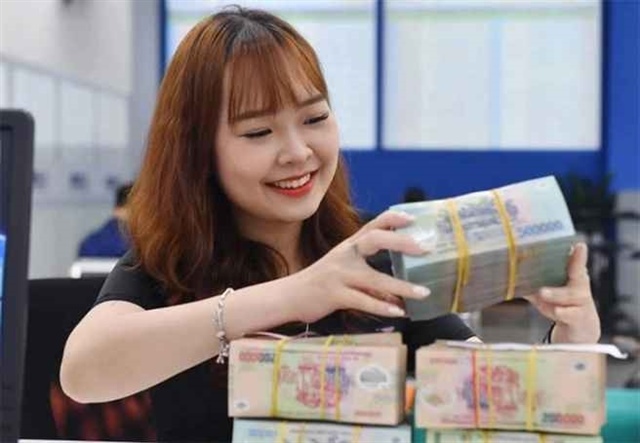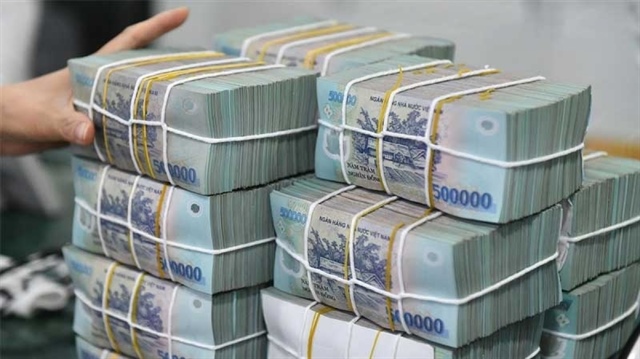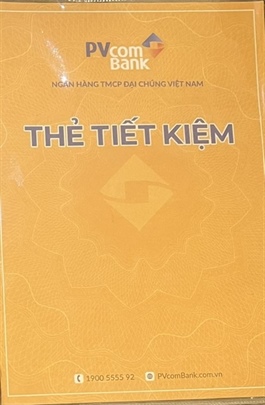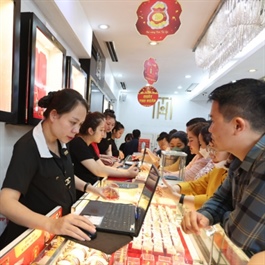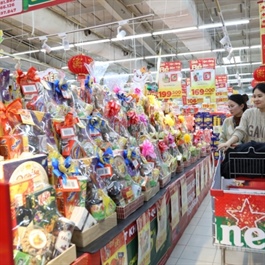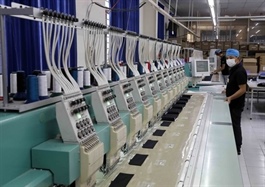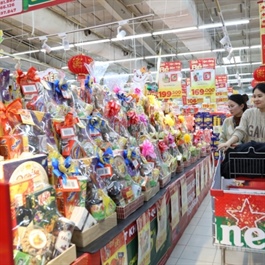MoF refuses to cut import tax for some materials of animal feed production
MoF refuses to cut import tax for some materials of animal feed production
The Ministry of Finance has refused to reduce import tax rates for some crucial materials of animal feed production as proposed by Bến Tre Province's voters.
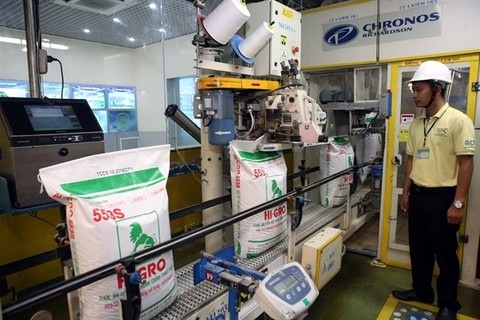
A production line of animal feed product at Bình Dương Province. — VNA/VNS Photo |
Earlier, Bến Tre Province's voters have expressed concerns about low selling prices of certain agricultural products, such as shrimp and beef, coupled with high cost of feed, that has led to financial losses for many livestock households. Therefore, the voters recommended the ministry consider reducing taxes on input materials of animal feed production to alleviate the financial burden and lower the overall cost of this product.
In response to petition from voters in Bến Tre Province, the ministry said the existing preferential import tax rates on raw materials for animal feed production are low enough to encourage the development of the domestic animal feed production industry and reduce dependence on imported raw materials.
The ministry has implemented reductions in preferential import tax rates, bringing them down to zero for wheat (previously 5 per cent and 3 per cent) and to 2 per cent for corn (previously 5 per cent). It's worth noting that a portion of the corn supply is sourced domestically. Additionally, preferential import tax rate for some other materials is nearly zero, such as fine flour, raw flour, post-slaughter by-products, bran and broken rice.
Meanwhile, some materials essential for poultry and pig production are subject to a preferential import tax rate of 3 per cent, while that tax for soybean meal is 2 per cent. Notably, the raw materials that are not produced domestically enjoy the preferential import tax rate of zero to reduce the production costs.
Besides that, reduction and extension of taxes, fees, and charges are still maintained to support the domestic livestock industry.
Recently, a number of ministries, branches and associations have proposed to cut the import tax rate of soybean meal. The Ministry of Finance is collecting opinions from these entities as well as the Việt Nam Chamber of Commerce and Industry to compile a proposel for the submission to the Government.




